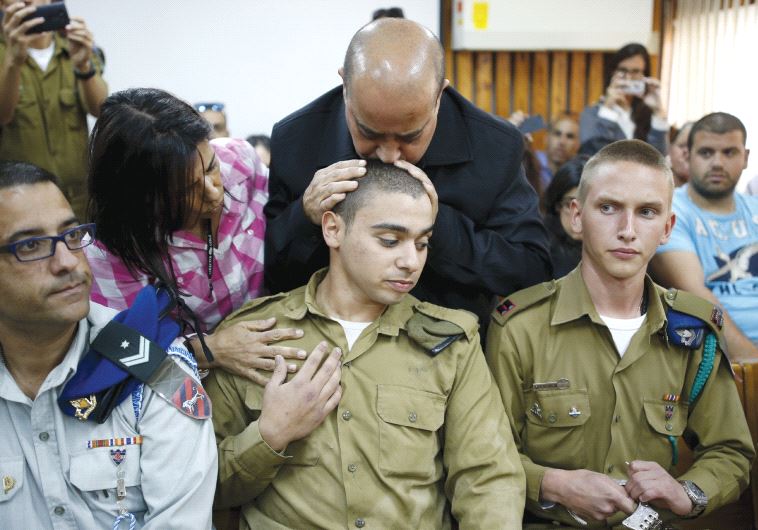Analysis: Azaria verdict may pose far-reaching global implications for Israel
The conviction of Azaria is the strongest move Israel has made to date which could get the ICC to back off.
 THE FATHER OF IDF soldier Elor Azaria kisses his head during a remand hearing last MarchUpdated:
THE FATHER OF IDF soldier Elor Azaria kisses his head during a remand hearing last MarchUpdated: